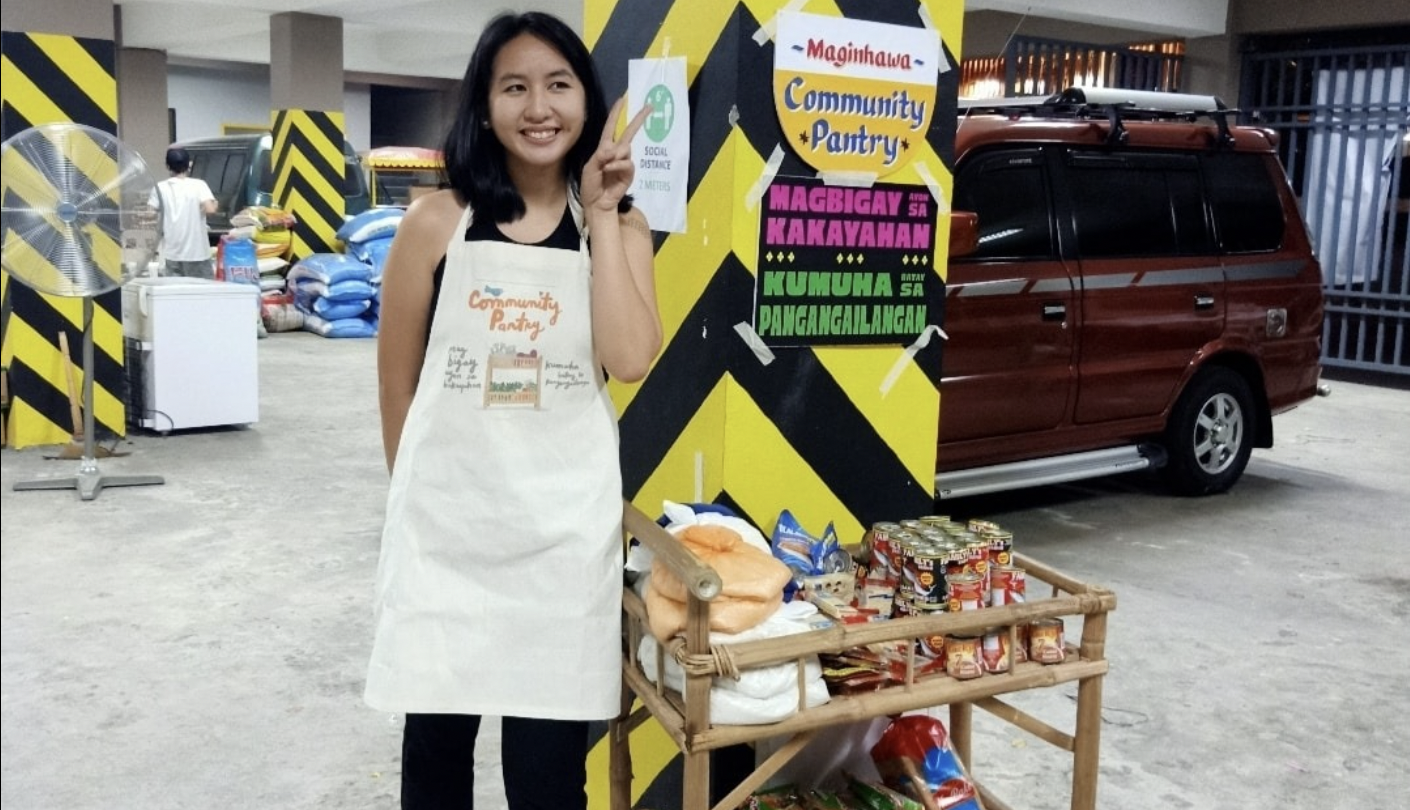Patricia Non, the organizer of the Maginhawa Community Pantry that launched a wave of similar community pantries across the country at the height of the pandemic, just got real about the damaging effects that red-tagging can have on an individual and revealed that she is seeking therapy to process the traumatizing events that have happened to her since.
“This is the first time I’m sharing this, but to be honest, I believe that red-tagging ruins lives,” Non wrote in Filipino in a Facebook post published yesterday. Red-tagging refers to the labeling of individuals as communists and terrorists and often leads to threats and actual violence.
Non said that she feels ashamed whenever she commits to an event she has been invited to but ends up flaking out or not talking to people because of her experiences with people red-tagging her “despite not knowing anything about [me] were “very traumatizing.”
The organizer revealed that she needs continuous professional help to process the events that have happened to her, yet said that there were months she was forced to skip therapy because she couldn’t afford it.
Non also said that getting red-tagged has impaired her ability to meet new people, as she was afraid they believed the fake news that spread about her, with some such YouTube videos having over 100,000 views.
She also bared that those experiences have robbed her of her creativity and ability to dream. “I have so much energy and ideas to give to the community, but I disregard or delay them and choose to keep quiet because someone might give malice to them,” she wrote.
The organizer revealed that fearing for her and her family’s lives has also given her constant anxiety. “I sometimes wonder if I would live long. I am afraid I might get kidnapped, become a desaparecido, or get killed. I worry about myself, but I also worry about my family if that happens because they do not deserve that and I don’t want their lives to get ruined,” she wrote.
Non said that it was only during the pandemic that she found her calling. “I struggled for years because I tried to fit within society’s expectations. When the pandemic happened, that’s when I started to fully appreciate myself, my family, our roots, being an activist, our cats, and the power to express love around us. I felt that I can finally be true to myself even if I had simple dreams,” she said.
But she said the joy of finding herself was short-lived because she was soon being defined by others accusations. “I was angry that I got red-tagged because [red-taggers] do not know me and what I have been through, yet they were the ones defining who I was to the world. I felt that I had just claimed my voice and they wanted to take that away from me. I was angry because I knew that they were not the ones who should be defining who I was.”
Non said that she just wanted to live a simple life, and that the fear and misery that comes from red-tagging jeopardizes even her simplest dreams. “I just want to have a family, cook, take care of many animals, plant, and I just want to grow old. I only have a simple dream and I do not dream of becoming rich,” she said.
Non rose to prominence after beginning the Maginhawa Community Pantry in Quezon City in April 2021 at the height of lockdown measures in the country, when many lost their jobs and livelihoods and could not easily afford basic necessities. The pantry followed the mantra “Give what you can; take only what you need” and sparked a wave of volunteerism across the country.
Yet just days after she began the initiative, Non reported being harassed by police who profiled her and started showing up at the site of the pantry with rifles, which led to a pause in the pantry’s operations.
READ: Quezon City community pantry shuts due to red-tagging
Non said that while she believed that there were good people in the government, the fact that she was being red-tagged by government officials scared her because they were influential, adding that there were ordinary citizens who wished for her to get killed or get raped.
The official social media accounts of the Quezon City Police District and the National Task Force to End Local Communist Armed Conflict (NTF-ELCAC) shared photos of Non’s pantry initiativem, as well as other community pantries, and warned people that these pantries were being used as propaganda to recruit people into the communist movement — an accusation that the Philippine National Police later denied.





Reader Interactions